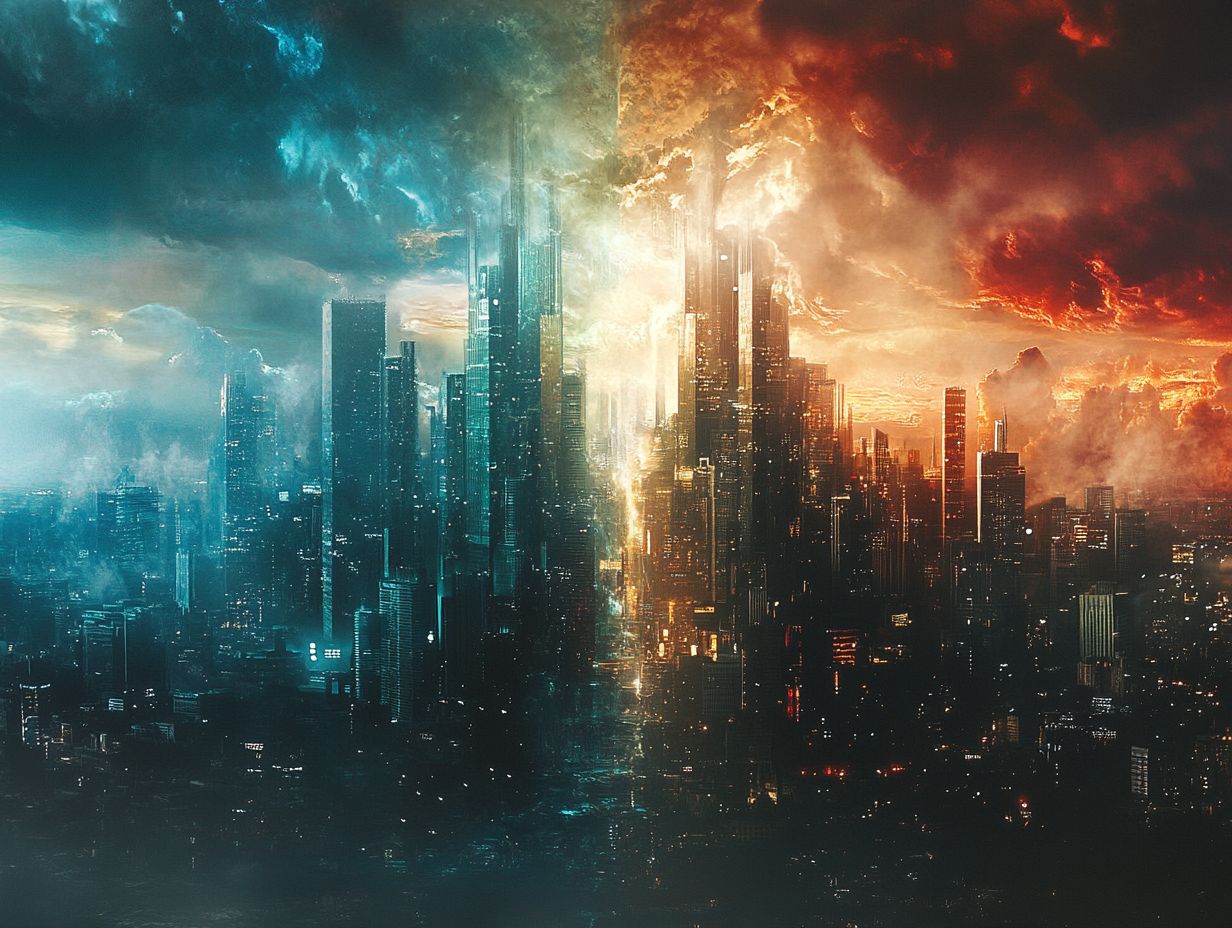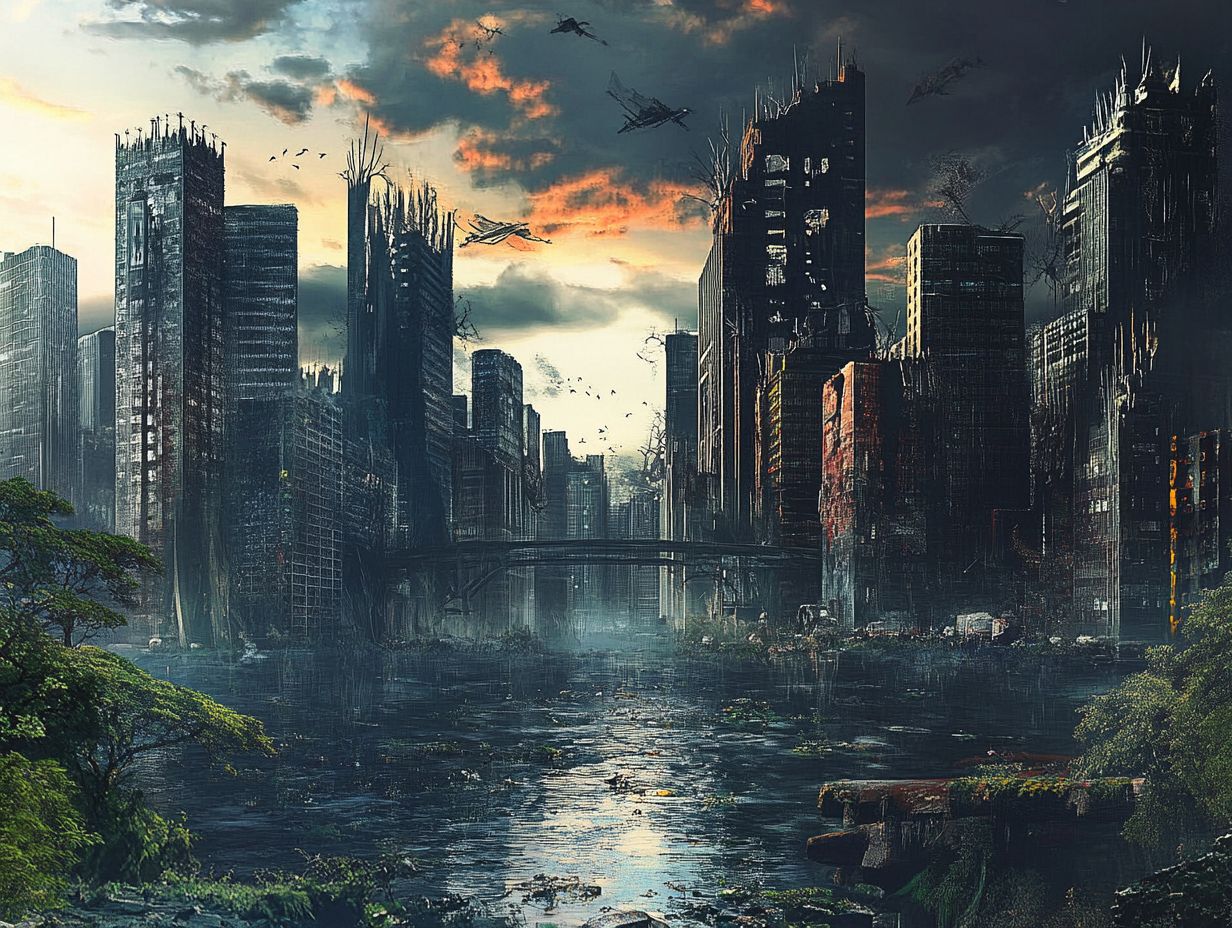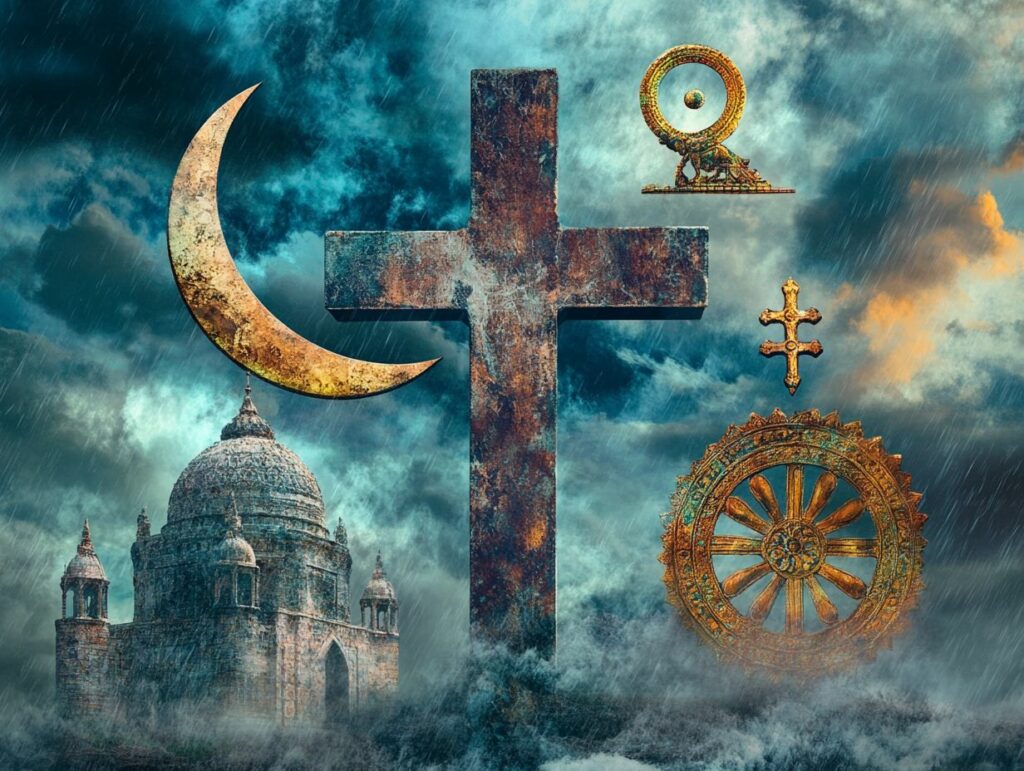Utopian visions of perfect societies have fascinated humanity for centuries, presenting ideas of harmony, equality, and fulfillment. However, as history and literature demonstrate, these dreams frequently clash with harsh realities, resulting in disillusionment and dystopia.
This article delves into the essence of utopia, highlighting both real-life and fictional examples while investigating the common pitfalls that lead to their decline. We explore the complexities of these idealized communities and reflect on the lessons learned, which ultimately shape our understanding of society today.
The Concept of Utopia

Utopia refers to the concept of a perfect society in which human nature aligns harmoniously with societal values, and where this ideal is manifested in observable reality. Throughout history, philosophers and visionaries have envisioned such paradigms, often reflecting their personal belief systems regarding ethics, morality, and the common good.
This section will explore various visions of utopia, as they provide insight into the complexities of human nature, the social contracts we inhabit, and the possibilities for transformative change that could lead to a more just and equitable world.
Defining a Perfect Society
According to the Social Progress Imperative, a perfect society is characterized by an equitable social structure, the protection of human rights, and active community participation, all of which contribute to social cohesion.
Examples of Utopian Societies

Utopian societies, both real and fictional, have emerged throughout history. Many of these have been utopian experiments that reflect diverse cultural narratives and humanity’s enduring quest to create an ideal world.
From Thomas More’s “Utopia” to contemporary examples, these societies offer valuable insights into the aspirations and challenges involved in building utopian communities.
Real-life and Fictional Examples
Utopian societies, whether they exist in reality or are depicted in fiction, provide valuable insights into societal progress and human aspirations. Auroville, located in India, serves as an example of a real-life utopian community. Additionally, the Oneida Community in New York during the mid-19th century and the Shakers in America were other real-world utopian societies that sought to create ideal communities based on their philosophical beliefs.
Founded by John Humphrey Noyes in 1848, the Oneida Community emphasized communal property and complex marriage. In contrast, the Shakers, a religious sect known for their ecstatic dancing, adopted a simpler lifestyle inspired by traditional Protestantism and established agricultural societies. The Shakers advocated for equal rights for both men and women but rejected sexual relationships.
In contrast, dystopian societies in fiction highlight the moral dilemmas associated with the pursuit of an ideal community. George Orwell’s *1984* introduced the term “Orwellian,” which describes totalitarian regimes that employ surveillance, propaganda, and violence to suppress individual freedoms. Both Aldous Huxley’s *Brave New World* and Ray Bradbury’s *Fahrenheit 451* caution against a future where people are kept complacent and entertained, thereby losing their freedom.
A more recent example, Margaret Atwood’s *The Handmaid’s Tale*, critiques certain interpretations of religion used to justify social order. Furthermore, the 2010 film *Inception* portrays a dystopian society in which technology blurs the lines between reality and dreams, raising ethical questions about existence and the role of dreams.
The Downfall of Utopian Societies

Utopian societies often fail due to common mistakes and systemic failures that reveal the complexities of human nature and the inherent power dynamics involved. These failures provide valuable lessons about the fragility of idealism and the moral complexities faced by individuals who strive for progress within constrained social structures.
Common Pitfalls and Failures
Common failures and pitfalls of utopian societies often manifest as authoritarianism and social engineering, which can lead to rebellion and disengagement among the populace when utopian ideals clash with the realities of human nature.
Such strict frameworks frequently demand a level of conformity that suppresses individuality, resulting in psychological harm for those who feel compelled to adhere to accepted standards. Historical examples, such as the dystopian regimes of the 20th century, illustrate how attempts to create a perfect society can devolve into oppressive regimes where dissent is not tolerated.
The tension between the desire for collective peace and the need for individual autonomy can trigger rebellion, as people resist the loss of their freedom. These uprisings not only disrupt societal cohesion but also highlight the fragility of human ideals in a controlled environment.
Dystopian Societies: The Dark Side of Utopia

Dystopian societies contrast sharply with utopian societies, as they prioritize oppression, surveillance, and conformity over individual freedom and rights. These societies serve as cautionary tales in dystopian literature.
The narratives within this genre delve into the psychological toll of living under totalitarian regimes and highlight the fragility of human ideals when confronted with authoritarian power dynamics.
Characteristics and Examples
Dystopian societies are characterized by oppression and control, leading to a loss of individualism, often accompanied by feelings of fear and hopelessness, as illustrated in Orwell’s 1984 and Huxley’s Brave New World.
These works of literature and film explore common dystopian themes while highlighting psychological resilience and hope in the face of totalitarianism. In dystopian narratives, societal control is frequently upheld by oppressive regimes that use technology, propaganda, and fear to suppress individual freedom and dissent.
For instance, the pervasive use of technology in films like The Matrix critiques society by revealing how deeply ingrained systems can manipulate perception and reality. The struggles faced by characters as they navigate their personal and collective identities within these oppressive worlds often reflect existential dilemmas and the conflict between conformity and rebellion.
While these narratives serve as cautionary tales about the potential dangers of authoritarian regimes, they also reaffirm the possibility of individual resistance and the capacity of the human spirit to challenge and overcome rigid societal structures.
Lessons Learned from Utopian and Dystopian Societies
The lessons learned from both utopian and dystopian societies carry significant implications for modern society. They highlight the complex relationship between idealism and practicality while revealing the ethical challenges encountered by contemporary social movements advocating for justice and equality.
Implications for Modern Society
The implications for modern society derived from historical and literary utopian and dystopian societies highlight the need for critical reflection on social justice and human rights, encouraging individuals and communities to pursue transformative change.
These narratives reveal the often stark contrast between idealism and authoritarianism, prompting a re-evaluation of current societal values and community engagement practices. The lessons drawn from historical and literary utopias and dystopias serve as both warnings and inspirations for today’s citizens, underscoring the importance of ethical considerations in shaping our collective future.
It is insufficient for individuals to harbor hope in their hearts; they must also amplify the voice of hope within their communities by engaging in ethical, thoughtful, and purposeful discussions and actions that promote equity and inclusion.


